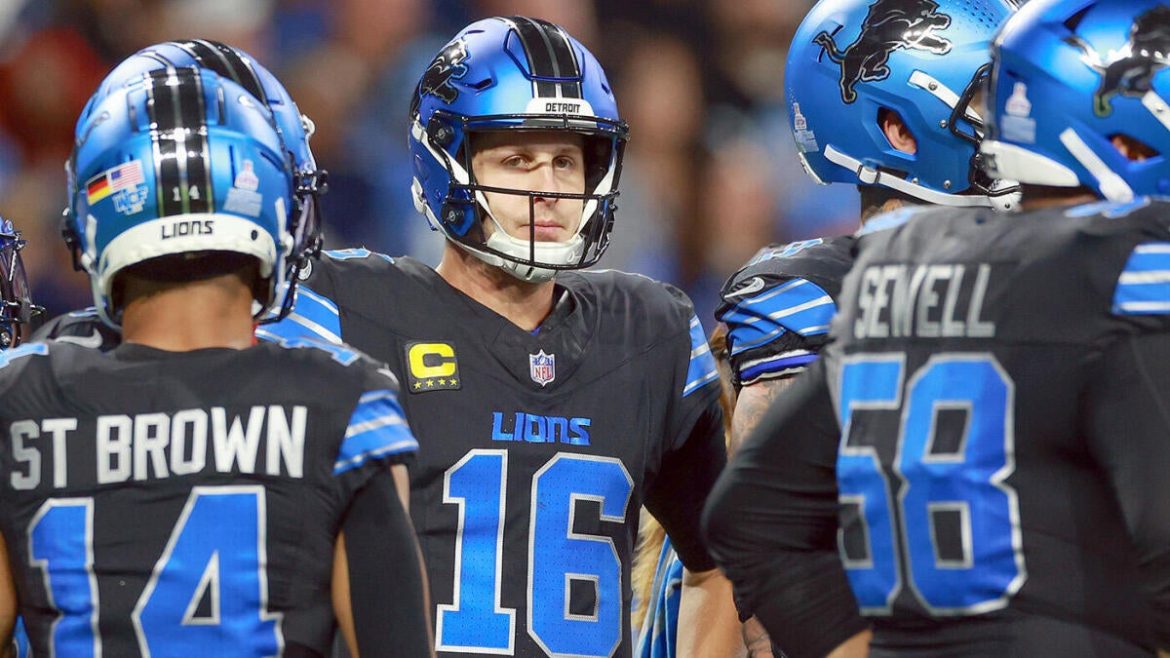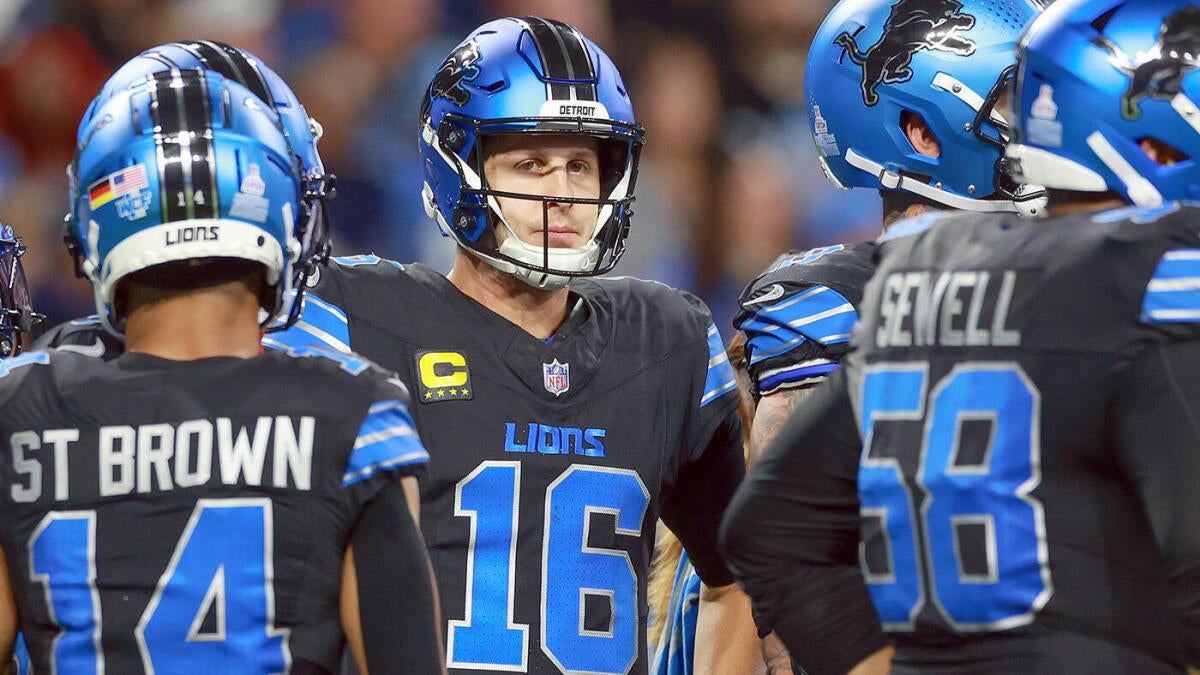Shifts and Prospects in the Detroit Lions’ Offense for 2024-2025
The Detroit Lions stand on the cusp of an intriguing transition period offensively, shaped prominently by personnel changes in coaching and the offensive line. While the team boasts some of the NFL’s premier talents at key positions, the evolving play-calling dynamics and lineup adjustments could redefine their offensive identity. A close examination of recent developments offers insight into both immediate impacts and potential strategic trajectories for the Lions.
—
The Backbone: Offensive Line Stability with Emerging Questions
One of the greatest assets of the Lions is their remarkably strong offensive line — often cited among the NFL’s elite, especially with marquee tackles Taylor Decker and Penei Sewell anchoring the edges. Judging by recent rankings, Detroit’s offensive line unit not only ranks at or near the top but also demonstrates consistent reliability crucial for both pass protection and run blocking.
However, despite this strength, concerns linger regarding internal shifts. The team faces a turnover or “mix-up” within the interior of the line, introducing uncertainty around cohesion and performance. Multiple new starters are expected to step in, leaving questions about whether the line’s effectiveness can be maintained at a championship level. The impact of these changes will hinge heavily on how quickly these players can adjust to the Lions’ system and maintain the line’s traditionally high standard.
Further complicating the outlook is the looming need for long-term durability. While critical components are healthy or expected to return, the Lions’ offensive line’s long-term outlook necessitates bolstering. The balance between maintaining elite performance now and developing sustainability across seasons is a strategic puzzle for the front office and coaching staff.
—
Play-Calling Dynamics: From Ben Johnson to John Morton and Dan Campbell’s Role
A seismic shift in the Lions offense lies in the change in play-calling leadership. Ben Johnson, the offensive coordinator and mastermind behind Detroit’s recent offensive success, departed for a head coaching role with another team. Johnson’s approach, regarded as innovative and highly effective, had established a dynamic offense centered around leveraging the current roster’s skill sets.
The team’s new offensive coordinator, John Morton, returns with experience but has not been a primary play-caller recently, which introduces both intrigue and uncertainty. Morton’s previous stint as a Jets offensive coordinator included play-calling duties, but it was some years ago, and the offensive landscape has evolved since. Analysts expect Morton to bring some differences in scheme and play design, but wholesale changes are not anticipated if the core personnel remains healthy.
Notably, the head coach Dan Campbell appears confident in the offense’s capacity to sustain success despite the coordinator change. Campbell himself has embraced an active role in offensive decision-making earlier in the season, even assuming play-calling duties temporarily. This hands-on involvement suggests a philosophical approach valuing adaptability and player-led execution over rigid coordinator dominance. Campbell’s confidence also reflects faith in the nucleus of players and the relatively seamless internal transition.
—
What Could Change: Tactical Adjustments and Style Evolution
While the base offensive weaponry remains intact, there is an expectation that John Morton’s arrival may tweak certain tactical elements. Morton’s familiarity with quarterback Jared Goff, developed during past team interactions, may influence play-calling in terms of formations, timing, and conceptual emphases. For example, the Lions might incorporate more spread concepts or diverse motion and personnel packages designed to unlock mismatches.
Despite this, recent commentary suggests the team plans to maintain continuity rather than overhaul the playbook. Stability is prioritized so new starters on the interior line and a new coordinator can integrate without destabilizing offensive production. The core principles—maximizing the tackling duo, employing a balanced run-pass approach, and leveraging the versatility of key skill players—are expected to remain.
This continuity aligns with evolving trends seen in other NFL teams who prioritize scheming around their talent rather than shifting drastically with every coaching change. Where differences could manifest is in creative play sequencing, situational aggression, and in-game adjustments, which Morton and Campbell will shape collaboratively.
—
Broader Offensive Challenges: Turnovers, Consistency, and Execution
One persistent challenge for the Lions has been managing turnovers. The offense’s ability to protect the ball often dictates the overall success of their schemes and game plans. Forcing turnovers through pressure or ball-hawking defense has been an area of focus, but the offense must reciprocate with discipline and secure execution.
Early 2024 performances revealed moments of stagnation and offensive predictability, leading to scrutiny about whether the offense has plateaued. The hope is that fresh perspectives in coaching, combined with offensive line depth returning to health, will mitigate these issues.
Ultimately, the team’s offensive trajectory will depend on maintaining the synergy between the line’s protection, the quarterback’s decision-making, and the play-calling’s strategic flexibility.
—
Conclusion: Navigating Transition with a Core of Strength and Optimism
The Detroit Lions enter the 2024-2025 seasons with a compelling mix of stability and change on offense. Anchored by an elite offensive line front and a confident head coach deeply invested in offensive outcomes, the loss of Ben Johnson undeniably introduces a need for adaptation. Yet, John Morton’s arrival as the new offensive coordinator, combined with Campbell’s continued leadership and the nucleus of skilled players, fosters optimism that the offense will not merely survive but evolve.
Mitigating turnover risks, integrating new starters on the line, and embracing nuanced tactical adjustments will be vital in sustaining and advancing offensive success. As the Lions navigate this period of transition, the interplay between coaching acumen, player execution, and scheme innovation will shape their offensive narrative moving forward — with the potential to remain one of the NFL’s more intriguing and productive units.





